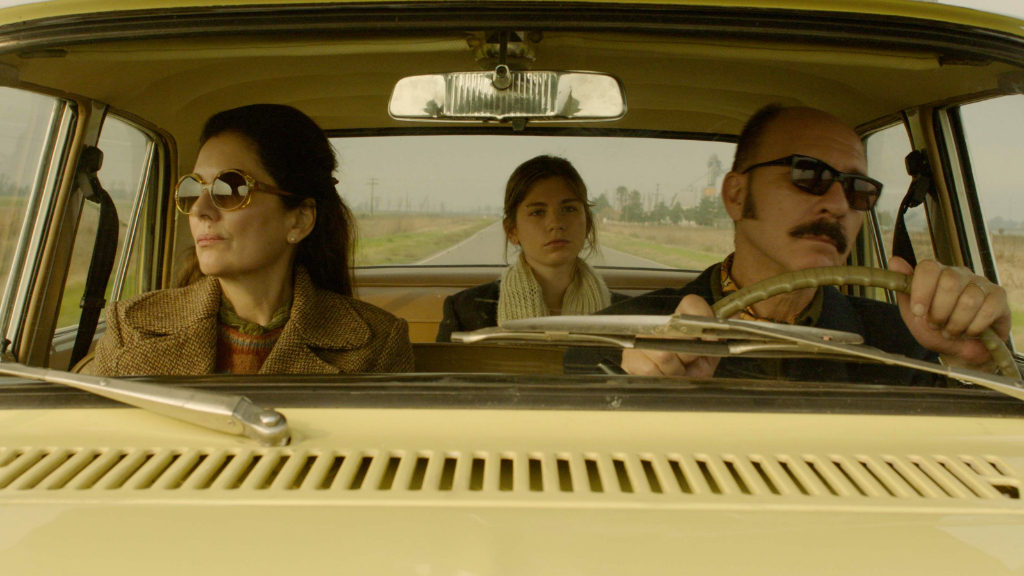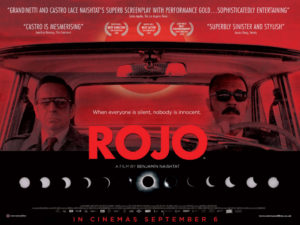Rojo

Rojo is a curious movie. At first glance it appears like a mystery thriller, with a plot involving lawyer Claudio (Darío Grandinetti) inadvertently killing the “Hippie” (Diego Cremonesi) and spending much of the 110-minute runtime trying to evade the prying eyes of Detective Sinclair (Alfredo Castro), a popular television crime-solver. But it quickly becomes apparent that the main plot is not the focal point of this feature. Instead, Rojo is an overall take on the dubious, unclear moral and societal landscape of Argentina in the 1970s; it is an idiosyncratic, polemical attack merely coated in a mystery thriller façade.
The result is a film that may not be a thriller, but it certainly maintains an air of mystery. There are several subplots: one involves Claudio’s daughter participating in a dance performance that kindles the jealousy of her boyfriend; another depicts Claudio being talked into participating in other shady businesses. This never serves to portray him as unscrupulous – rather, it suggests that in this difficult time in the Argentina’s history many an individual would have been driven into a life of crime to protect their own interests.
Indeed, much of Rojo’s focus is on questions of guilt and innocence, questionable morality and the desperation of living in a time and place in which one’s entire surroundings breathe an air of wrongness. Director Benjamín Naishtat masterfully mirrors these thematic elements in his shots, which always carry an atmosphere of confinement and discomfort, whether it be in the narrow office space or on the mucky, decomposing buildings of the local town. The movie also oozes symbolism referencing many aspects of the country’s society and politics of the 1970s.
However, this also marks Rojo’s weakness. Without a firm knowledge of Argentina’s history much of the symbolism feels obscure and will be lost on a general audience. Some of the subplots serve the themes, rather than the overall plot, resulting in some of them remaining unsolved. The main plot, too, builds at a snail’s pace and has an anticlimactic ending, which may be brilliant from a thematic perspective, but will leave many onlookers unfulfilled.
As such, this feature receives a cautious recommendation. It is never boring, but often confusing, lacking in tension or slow, despite all of it being interesting if nothing else, and several moments being generally brilliant. Rojo is most suited to an audience with an interest in 1970s Argentina.
Michael Higgs
Rojo is released in select cinemas on 6th September 2019.
Watch the trailer for Rojo here:

























Facebook
Twitter
Instagram
YouTube
RSS